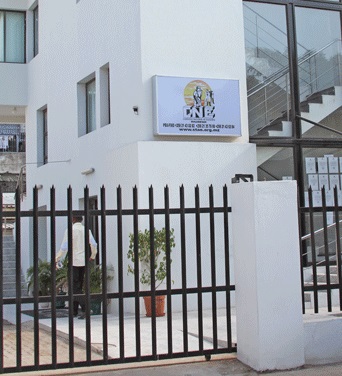Mozambique: Africa “excessively dependent on imported medicines", says Chapo
Mozambique: STAE continues to organise; municipal boundary problems – By Joseph Hanlon

File photo: Domingo
Despite the National Elections Commission decision not to accept candidates lists, STAE (Election Technical Secretariat, Secretariado Tecnico de Administracao Eleitoral) has continued to organise the 10 October municipal elections. This turned out to be a wise decision, because the agreement between president Filipe Nyusi and interim Renamo leader Ossufo Momade on demilitarization announced Wednesday opens the space for municipal elections to take place as planned.
Last week STAE opened the tender for supply of voting material. This should have taken place between 23 May and 18 June, but STAE spokesperson Claudio Langa said that material would still arrive in time for 10 October elections.
And STAE has continued with the recruitment and selections of electoral staff, trainers, and civic education agents, which began at the end of June. This is done at provincial level with different local calendars. For example, in Maputo city recruitment is now under way, running from 26 June to 25 July.
Frelimo unexpectedly forced the cancellation of the special parliament session scheduled 21-22 June to pass new local election and municipalities laws, and Frelimo linked members of the CNE said that without the new law the CNE could not accept lists of candidates for municipal assemblies, due to start 5 July for 22 days. But STAE continued to move forward, working under the parts of the old elections laws still valid after the constitution changes.
It is expected that a special session of parliament will be called for the next few days. Before the cancellation of the 21-22 June session, parliamentary commissions had already completed their work revising the laws submitted by the Council of Ministers, so a two-day special session should be adequate. If held quickly, then elections could still be held on 10 October as planned.
Unclear boundaries caused big changes in 5 cities
In five cities, registration brigades did not know the boundaries of their own municipalities. STAE had to correct the registration totals when it received the registration brigades’ laptop computers. These have geographic codes which show where the registration team was working, and STAE discovered that some teams did not realise which side of the boundaries they were on.
Five municipalities gained or lost more than 1000 voters in the final lists. STAE never volunteered an explanation, and it was only when pressed in an interview with this newsletter that STAE spokesperson Calaudio Langa explained that registration brigades in these cities did not know where the boundaries were.
The biggest difference is in Ribaue, Nampula, where final data reported on 24 May by STAE said that 32,462 voters had been registered, but on 22 June this was cut to 25,287. The other 7,175 people were discovered to live in Ribaue district but not in the municipality. They were told to come and vote on 10 October, and will be surprised and angry to find they cannot vote in October.
Registration took place in the entire district containing a municipality and thus it is possible for STAE to retrospectively locate registration posts correctly. Voters cards are also valid for national elections in October next year.
people were discovred to live in Ribaue district but not in the municipality, and will be surprised and angry to find they cannot vote in October.
Langa reported similar issues in four other towns. In Chokwe, Gaza, voter numbers increased from 44,506 to 46,970 (+6%); in Nhamatanda, Sofala, they fell from 23,687 to 22,158 (-6%); in Sussundenga, Manica, they rose from 14,725 to 15,830 (+8%); and in Catandica, Manica, STAE cut 2% of voters from the preliminary data.
Brigades failed to report 50,000 voters
Registration brigades failed to report more than 50,000 voters, who were only discovered when STAE checked the laptop computers. Registration presented on 24 May was 6,766,236 voting age adults in all districts with municipalities, but a month later, on STAE increased this by 50,346, raising the number registered to 6,824,582.
This also was not mentioned or explained at the time, so the Bulletin asked Claudio Langa to explain. He said that 50,346 registrations not reported by the registration brigades were only discovered when the laptops were examined.
Comment: CNE should be proactive on transparency, and not wait for our questions
More than 7000 people who think they live in Ribaue municipality and have voters cards do not know it yet, but they cannot vote in municipal elections this year. We know this and are publishing this today, only because we kept asking. But, so far, 22% of the people who think they will be able to vote in Ribaue in October still do not know they cannot. Will CNE wait until 10 October when they show up at non-existent polling stations?
Now we also know how the register increased by 50,000 voters, but only because the Bulletin kept asking.
Surely the National Elections Commission (CNE) and STAE should be proactive on transparency, and give these explanations when data is published. Changing numbers and not even saying that the numbers are different inevitably leads to suspicion of misconduct. The Bulletin makes the comparison and notes the difference, which leads some readers to think the CNE has something to hide. Sometime, if we ask often enough, there is an explanation – and sometimes not.
Mozambique’s electoral commission is probably unique in major democracies in believing that it can change numbers – including numbers of votes – without saying anything and without explanation. Changes are often justified and necessary, and in other countries there are detailed reports of such changes after the election – but not in Mozambique. Lack of transparency may be one reason why there is low trust in elections in Mozambique.
7 citizens’ lists
Seven citizen’s groups will have the right to contest municipal elections in October. Citizens groups register locally, so there is a delay in their final approval by the CNE. One such group, from Manica town, was rejected for not meeting the legal conditions. The approval so far is of parties, coalitions and citizens groups, who now have the right to present candidates lists.












Leave a Reply
Be the First to Comment!
You must be logged in to post a comment.
You must be logged in to post a comment.